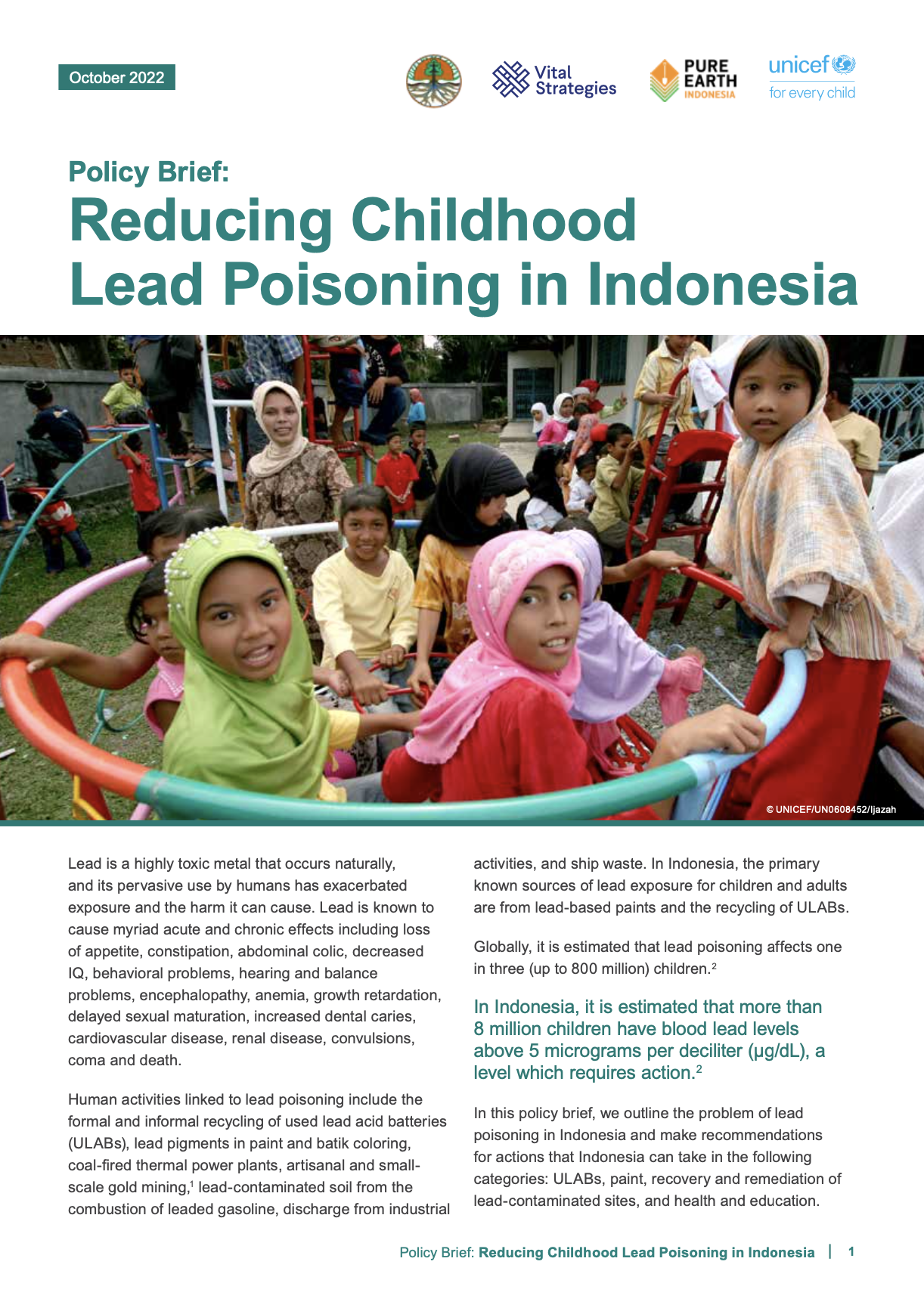Globally, it is estimated that lead poisoning affects one in three (up to 800 million) children. In Indonesia, the primary known sources of lead exposure are from lead-based paints and the recycling of used lead acid batteries (ULABs). There are an estimated 8 million children in Indonesia who are affected by lead poisoning, but given that there has not been a national surveillance program for lead exposure, the true figure could be much higher.
In this policy brief, produced in partnership with the Indonesian Ministry of Environment and Forestry, UNICEF Indonesia and Pure Earth, we outline the problem of lead poisoning in Indonesia and make recommendations for actions that Indonesia can take in the following categories: used lead acid batteries (ULABs), paint, recovery and remediation of lead-contaminated sites, and health and education.
(November 2022)
Recent Abstracts
The Power of Storytelling: Guidance for the Creation of Testimonials
Lead Poisoning and Early Childhood Development
Prioritizing Evidence Gaps: Air Pollution and Health Impacts of Climate Action
Raising Alcohol Taxes to Reduce Harm: Fact Sheets for Brazil
Risk of mortality by aggression: A retrospective cohort study in women with notification…
How the Alcohol Industry Steers Governments Away From Effective Strategies to Curb Drink…
Analysis of the Efficacy of Alcohol Industry-Sponsored Drink-Driving Campaigns
Messaging Recommendations for Effective Road Safety Campaigns: Lessons From Formative Research for Drink…
Prescribing Psychostimulants for the Treatment of Stimulant Use Disorder: Navigating the Federal Legal…
Enforcement of COTPA in India- current status, challenges and solutions
